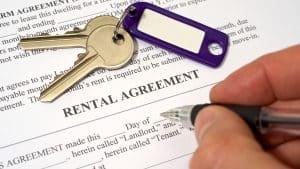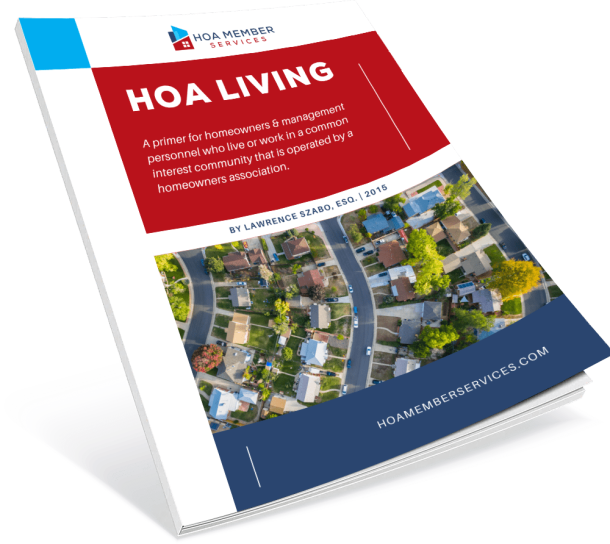Imagine finding the perfect home in a beautiful, close-knit community, only to discover strict rules about renting it out. Quite a shock, right?
In today’s world, flexibility and investment opportunities are key to passive income. That’s why knowing about rental restrictions is super important if you’re considering buying a house in an HOA neighborhood.

Such restrictions can really catch you off guard and shake up your homeownership experience or property values. But don’t worry; we’ve got you covered.
In this article, we’ll break down everything you need to know about HOA rental restrictions. What are these, why do they exist, how could they affect you, and how can you get around them? Let’s make sense of it all.
What Are HOA Rental Restrictions?
Say you move into your dream home — the neighbors are friendly, the amenities are amazing, and the vibe is just right. Everything seems perfect until you decide to rent out your unit and find that your HOA has a whole rulebook on it.
What’s going on? HOA rental restrictions it is.
In layman’s terms, HOA rental restrictions are rules set by your homeowners’ association that define whether and how you can rent out your property. The HOA boards put these rules in place, usually to keep your neighborhood nice and orderly.
However, these restrictions can be a bit of a headache if you want to turn your house into a rental unit to cover costs. We’ll get into the ins and outs of that in a while.
First, let’s take a look at the types of rental restrictions you might run into.

Types of Rental Restrictions
1. Rental Caps
Some HOAs limit how many homes in the community can be rented out at once; this is called a rental cap. Rental caps keep the neighborhood from turning into a rental hub, preserving a sense of community.
2. Minimum Lease Terms
This simply means the shortest time you can rent your house. Short-term rentals are often a no-go in HOA communities for neighborhood stability.
That’s why HOAs usually set a minimum lease period, like six months or a year, to avoid a revolving door of tenants.
3. Approval Processes
You might need to get the HOA’s thumbs-up before you can rent out your place. This can involve submitting your lease agreement and tenant details for review.
4. Tenant Screening Requirements
Some HOAs want to make sure your tenants are upstanding citizens and a good fit for the community. So they might require background checks or have specific criteria that tenants must meet, e.g., credit score minimums.
5. Owner-Occupancy Requirements
In some cases, HOAs might have you live in your house for a certain amount of time before you can start renting it out. This ensures owners are committed to the community before they start leasing their homes.
6. Rental Fee
HOAs might charge additional fees or assessments for rental properties to cover the extra wear and tear on common areas and the added administrative work.

Why Do HOAs Implement Rental Restrictions?
Let’s face it — HOA rental restrictions can hit a snag on your plans to earn a few extra bucks off your property investment. But why exactly do HOAs put brakes on renting out?
Well, it’s not just about rules for the sake of rules; there’s some solid thinking behind these decisions.
Here are the main reasons why HOAs feel the need to limit rentals:
Protect Property Values
Property owners are more likely to keep their homes and surroundings in top shape than short-term renters. This impacts the overall appeal and worth of the neighborhood, helping keep property values high.
Community Stability
Nobody likes constant change, right? Frequent turnovers can make a neighborhood feel like a revolving door.
By limiting rentals, HOAs aim to ensure the neighbors know and trust each other, leading to a stronger sense of belonging. This creates a more stable and tight-knit community.

Safety Concerns
HOAs believe that homeowners are more invested in the community’s safety and well-being compared to renters. So, having more owners around can lead to a secure environment, as they are more vigilant of their surroundings.
Insurance Premiums
High rental rates can sometimes skyrocket insurance premiums or make it difficult to obtain coverage. By placing rental restrictions, HOAs stay within insurers’ preferred risk profiles to keep costs manageable.
How do HOA Rental Restrictions Impact Homeowners?
HOA rental restrictions can impact a property owner in both positive and negative ways. While we’ve already put some light on the plus side, it’s time to check out how it can also take a toll on you.
Here’s a side-by-side comparison of the pros and cons of rental restrictions to clear up how they can shape your experience as a homeowner:
Pros and Cons of Rental Restrictions
| Pros | Cons |
| Strong Community Vibe: Consistent residents maintain a cohesive and familiar atmosphere.
Reduced Criminal Activity: Fewer unknown renters mean everyone knows each other better, making it easier to spot anything suspicious. Property Value Stability: A stable set of neighbors translates to stable property values. |
Reduced Flexibility: Want to list your house on Airbnb for some extra cash through vacation rentals? Short-term rental restrictions can crush your plans.
Potential Financial Impact: No rental income means fewer greens in your pocket each month. Low Resale Value: Some buyers might shy away from properties with rental restrictions making it trickier to sell. |
How to Navigate HOA Rental Restrictions?
Dealing with HOA rental restrictions can feel like untangling a knot — frustrating. But with the right approach, it’s definitely doable.
Here’s what you need to do before renting out your property:
Steps to Find Out About HOA Rental Restrictions
- Review Governing Documents: Your first step should be to dive into the CC&Rs (Covenants, Conditions, and Restrictions) and bylaws of your HOA. These governing documents clearly lay out the rules around rental policies.
- HOA Meetings and Boards: Don’t skip those HOA meetings! They’re a goldmine for direct communication with the HOA board and updates on any changes or new rules.
- Real Estate Agents and Attorneys: Not sure about the legal jargon? Reach out to professionals who specialize in HOAs. They can break down the rules and tell you exactly what you need to know.
“Now that I’m fully aware of my HOA’s rental restrictions, how do I get around them?”
We got you on that too! Let’s break it down step by step to tackle the restrictions head-on.

Ways to Deal with Rental Restrictions
- Plan Ahead: Before making an agreement, make sure your prospective tenants are fully compliant with HOA rules. This means setting clear expectations about the types of leases allowed and other community rules.
- Seek Exemptions: Got a unique situation? HOAs sometimes offer exemptions or variances for special circumstances. Whether it’s due to financial hardship or unique family situations, don’t hang back to make your case.
- Consult a Legal Counsel: Sometimes, rental restrictions can be unfair or overly burdensome. If your HOA isn’t enforcing reasonable rental restrictions, an HOA attorney can back you up. They can provide valuable guidance and support to challenge them.
- Sell Your House: Now, we don’t feel good about telling you this, but sometimes it’s the only last resort. If all else fails and the restrictions are too much of a hassle, selling your property might be the best move for you.
Homeowners Also Ask:
- Can the HOA change rental rules after my purchase?Absolutely! HOAs often have the power to update rental restrictions, even after you’ve bought your home and settled in.However, these changes need a majority vote from the community. So it’s wise to keep an eye on upcoming meetings and proposed changes that could impact you.
- What happens if I violate rental restrictions?If you break the rental rules, it’s not a small matter. You could face fines, legal hassles, or even have to evict your tenants.Each HOA handles violations differently, but it’s always better to play by the association rules to avoid these penalties.
- Can I appeal an HOA rental restriction decision?Yes, you can! If you think a rental restriction decision is unfair, you have the right to appeal. This usually means submitting a formal request and explaining your case at an HOA board meeting.If that doesn’t work out, you can take further legal action with the guidance of an attorney.

Key Takeaways
When you hear about HOA rental restrictions, it can stir up a lot of questions and confusion; that’s what this guide is all about.
To put it simply, rental restrictions are more than just red tape. They are strategic measures designed by your HOA to preserve and enhance community standards.
But while these rules can bring a lot of positives to your neighborhood, they might cramp your style a bit on the other hand.
That’s right, rental restrictions can dramatically affect everything from your rental income to the overall value of your home. But can you tackle these?
Absolutely! Staying informed is your best defense. Review state laws and HOA governing documents to ensure compliance and protect your rights.
Need more personalized advice? We’re here for you. Become a member to receive direct assistance from a professional HOA attorney. Get the expertise you need to find your way through legal waters smoothly!


